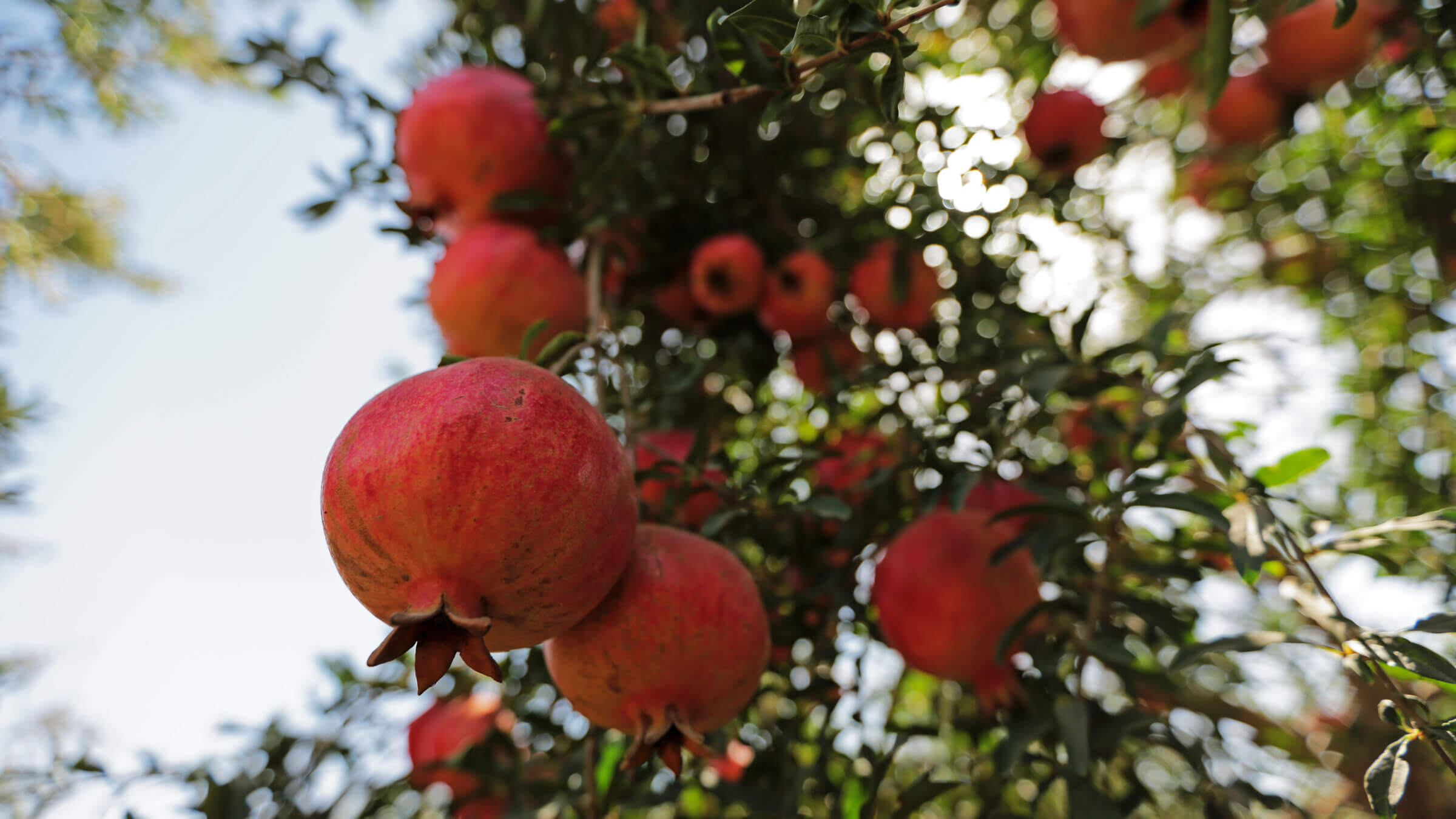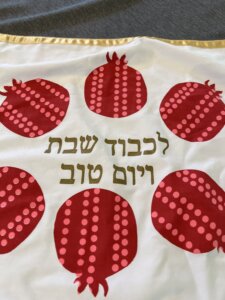Why Jews see pomegranates as symbols of both love and war
The pomegranate tree planted by Kamala Harris and Doug Emhoff has conflicting meanings

In Hebrew, a pomegranate is also a ‘grenade.’ Photo by Getty
When Vice President Kamala Harris and Second Gentleman Doug Emhoff planted a pomegranate tree outside the vice president’s residence to honor the victims of Oct. 7, I immediately thought of the Hebrew word for pomegranate — rimon.
It appears prominently in the Torah as one of the seven species native to the land of Israel, along with wheat, barley, grapes, figs, olives, and honey, or date honey.
It is also one of the items the 12 spies bring back from their infamous scouting journey. And of course, pomegranates appeared on the kohen gadol, or high priest’s clothing.
“And they made upon the skirts of the robe pomegranates of blue, and purple, and scarlet, and twined linen,” Exodus 39:25 reads in the 1917 Jewish Publication Society translation.
But in contemporary Hebrew, rimon means grenade. That’s because a grenade looks something like a pomegranate.
And sadly, grenades figured prominently on Oct. 7. On Israeli television, I recently heard a young woman named Irene Shavit describe how her fiancé, 21-year-old Netta Epstein, kafatz al rimon — “jumped on a grenade” — in order to save her. They were both in the safe room, and after he was killed by the explosion, Hamas terrorists continued to shoot at his body, she said.
She stayed silent, to save her life.

The anchor, Niv Raskin, asked her how her year went, and if she was looking for a new partner. Shavit explained that her year had been extremely hard, but that she was intentionally choosing happiness. “I love love,” she said, smiling.
Without love, she explained, she would be dead.
In Jewish tradition, a rimon, a pomegranate, is also a sign of love. In the Song of Songs, a pomegranate appears:
Your lips are like a crimson thread,
Your mouth is lovely.
Your brow behind your veil
[Gleams] like a pomegranate split open.
Sadly, grenade attacks were a gruesome theme on Oct. 7.
Hersh Goldberg-Polin, an American Israeli, and his close friend, Aner Shapira, heroically threw back grenades that had been thrown into the spot where they had sought shelter with others at the Nova festival. Shapira lost his life, and Goldberg-Polin lost part of his arm, to a rimon, or grenade.
Goldberg-Polin was later murdered by his Hamas captors.
To many, the pomegranate is associated with the Torah, because many Torah covers have some kind of pomegranate drawing or an embroidered pomegranate on them.
Some people say that the pomegranate has 613 seeds, corresponding to the 613 mitzvot in the Torah. If you have ever actually counted, you know this isn’t necessarily true — pomegranates don’t always have the same number of seeds.
But that idea probably comes from a misunderstanding of a moment in the Talmud. In Berachot 4, a passage reads that even “the empty ones among the Jews are full of mitzvot like a pomegranate is [full of seeds.]”

In any case, the pomegranate is a symbol of love, of fertility, of continuation, and of an ancient connection to the Land of Israel. It’s often on Rosh Hashanah tables as a symbol of renewal. To many, the numerous seeds of the pomegranate symbolize mitzvot, and the fruit is an allusion to the Torah itself.
But at this fraught moment, all of that symbolism is also tied up in war and tragedy — in the images of a young man who sacrificed himself for his fiancée, and in another young man who lost half an arm to save his friends.
The many meanings of rimon capture the layers of Hebrew, from ancient to contemporary. And they also, perhaps, reflect the many aspects of today’s Israel. This year, throughout the Jewish world, the holidays are different. Meaning has been transformed. Even the traditional foods — like the pomegranate — feel and taste different.
Yet, as has been true throughout Jewish history, we remember. We mourn through celebration. And yes, Vice President Harris — we plant where we can.
A message from our Publisher & CEO Rachel Fishman Feddersen

I hope you appreciated this article. Before you go, I’d like to ask you to please support the Forward’s award-winning, nonprofit journalism so that we can be prepared for whatever news 2025 brings.
At a time when other newsrooms are closing or cutting back, the Forward has removed its paywall and invested additional resources to report on the ground from Israel and around the U.S. on the impact of the war, rising antisemitism and polarized discourse.
Readers like you make it all possible. Support our work by becoming a Forward Member and connect with our journalism and your community.
— Rachel Fishman Feddersen, Publisher and CEO






























